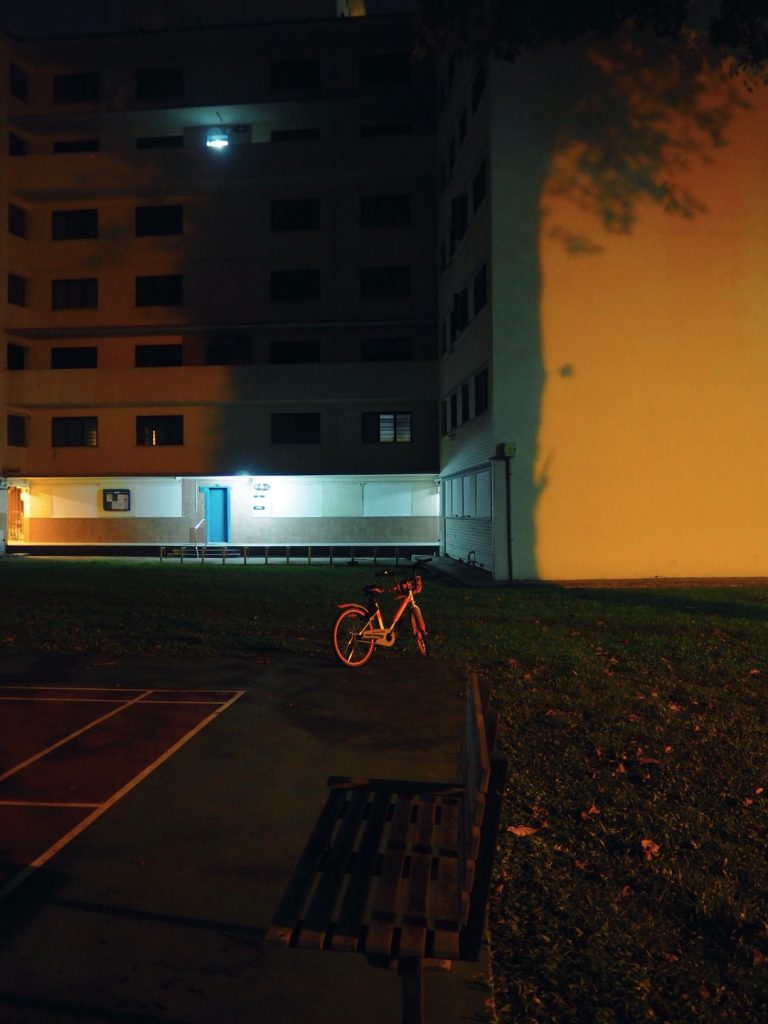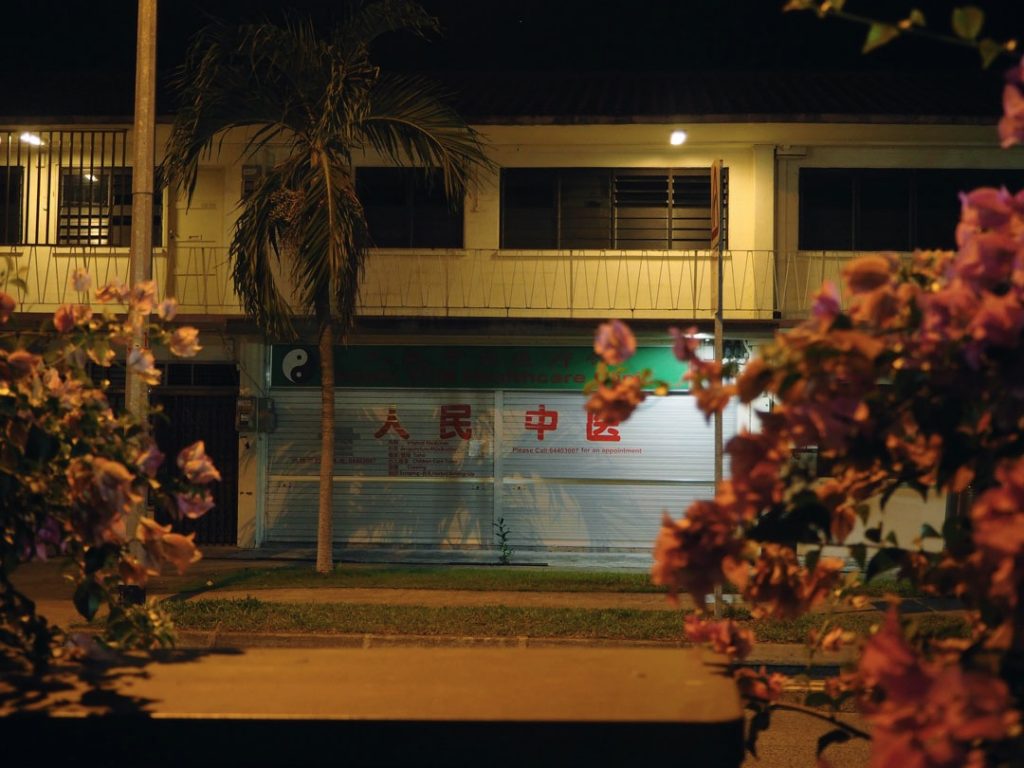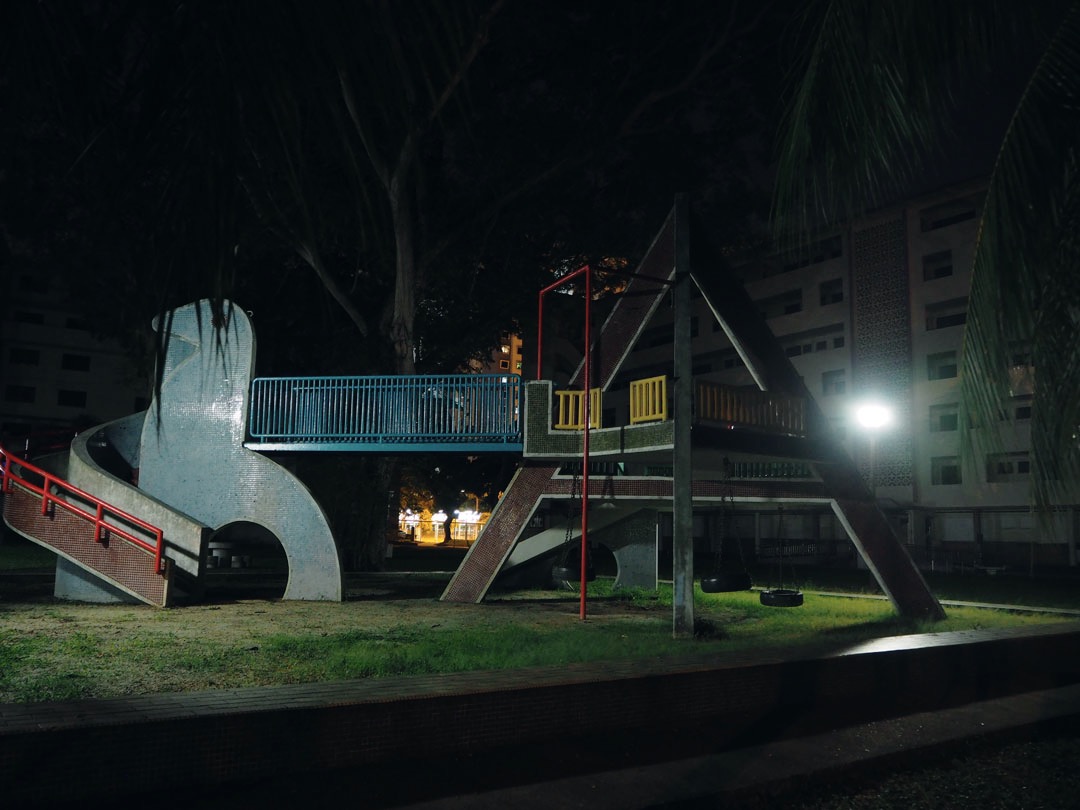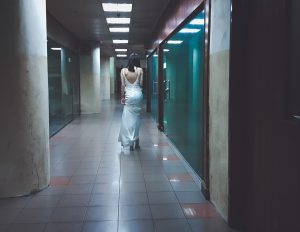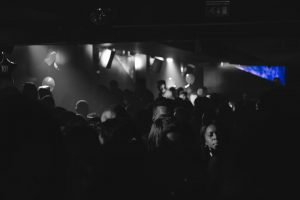It’s deathly quiet, except for the distant murmur of cars passing by on the highway next to the estate.
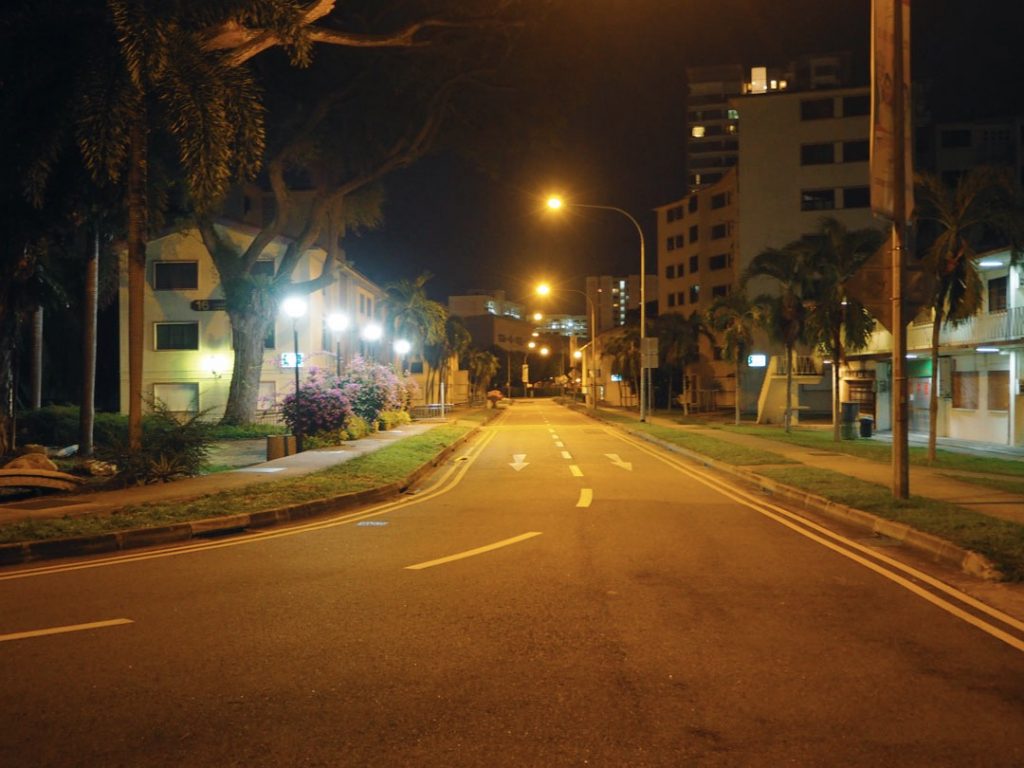
Today, the deserted estate remains unused after residents moved out at the end of last year to make way for redevelopment.
It’s been more than a year since we were told that Dakota Crescent would be replaced. Yet neither construction nor conservation has begun. Former residents hoping for closure have no choice but to keep on waiting.
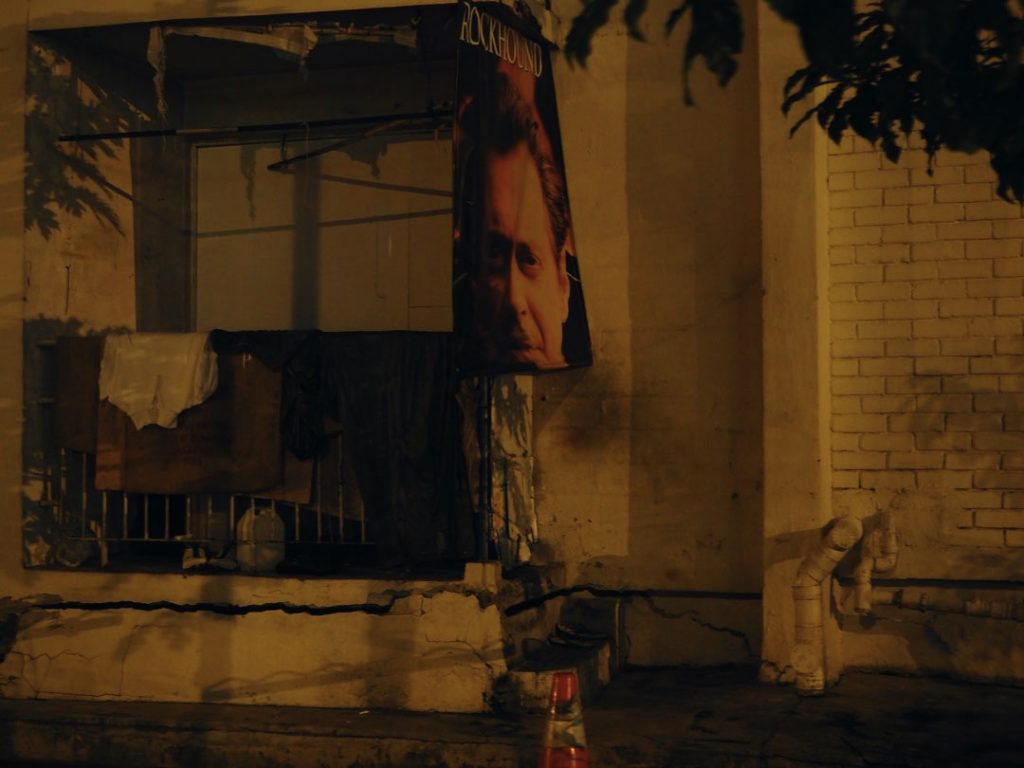
There is a sense of belonging that lingers. But who does sense belong to?
To the estate, which once used to mean something? Or to residents, many of whom were forced to give up the only real home they ever knew?
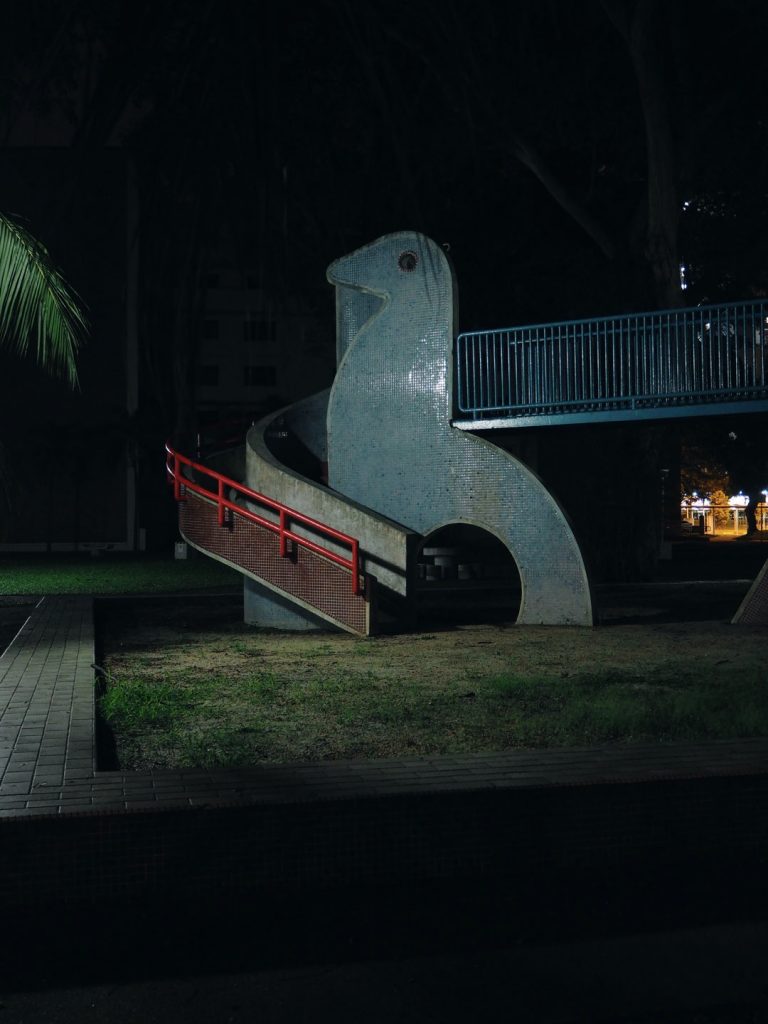
Like most en-bloc estates in limbo, this one too appears unsure of its future. For now, nature moves slowly but surely over everything; reclaiming, redecorating.
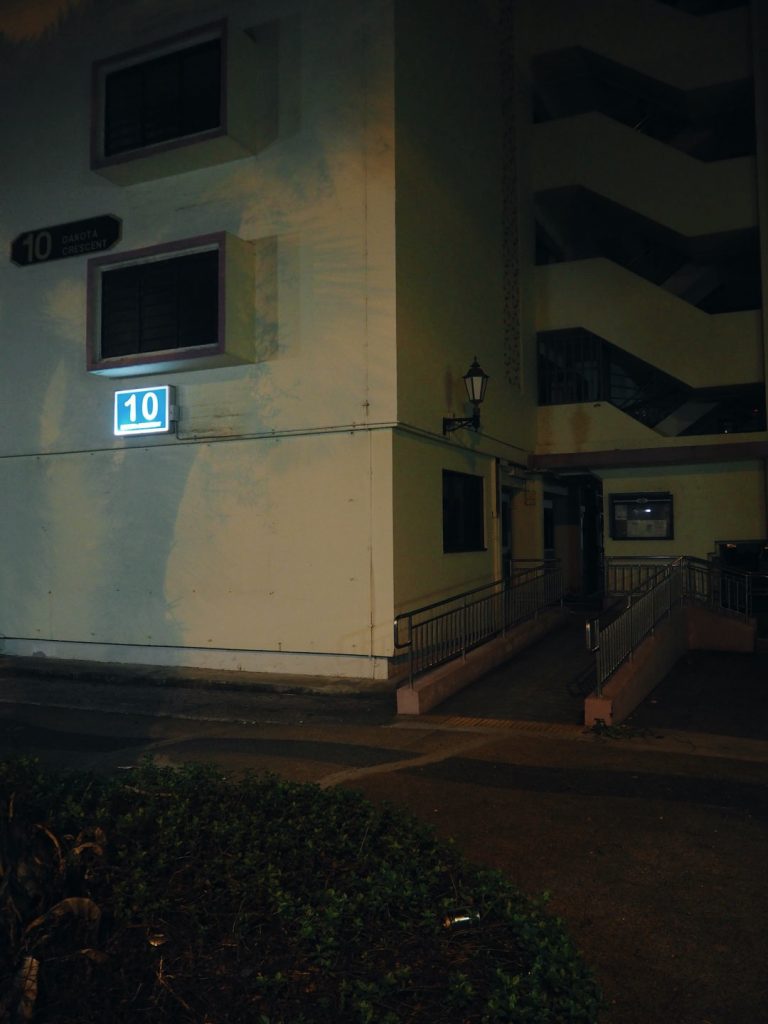
Having known nothing but HDB estates that buzz with signs of life, even when everyone’s asleep, something about these unoccupied buildings seems completely unnatural. It’s as though the ghosts of previous lives continue peeking out from the decay.
Letter boxes stuffed with unopened letters, paper notices are stuck on shuttered doors, and stray cigarette butts litter sheltered walkways.
A gentle breeze blows a stained, empty styrofoam cup onto my path. And I think, perhaps new ghosts have found their home here.
When I peer through the shutters into a ground floor flat, I see condom wrappers and a cigarette box scattered on the floor.
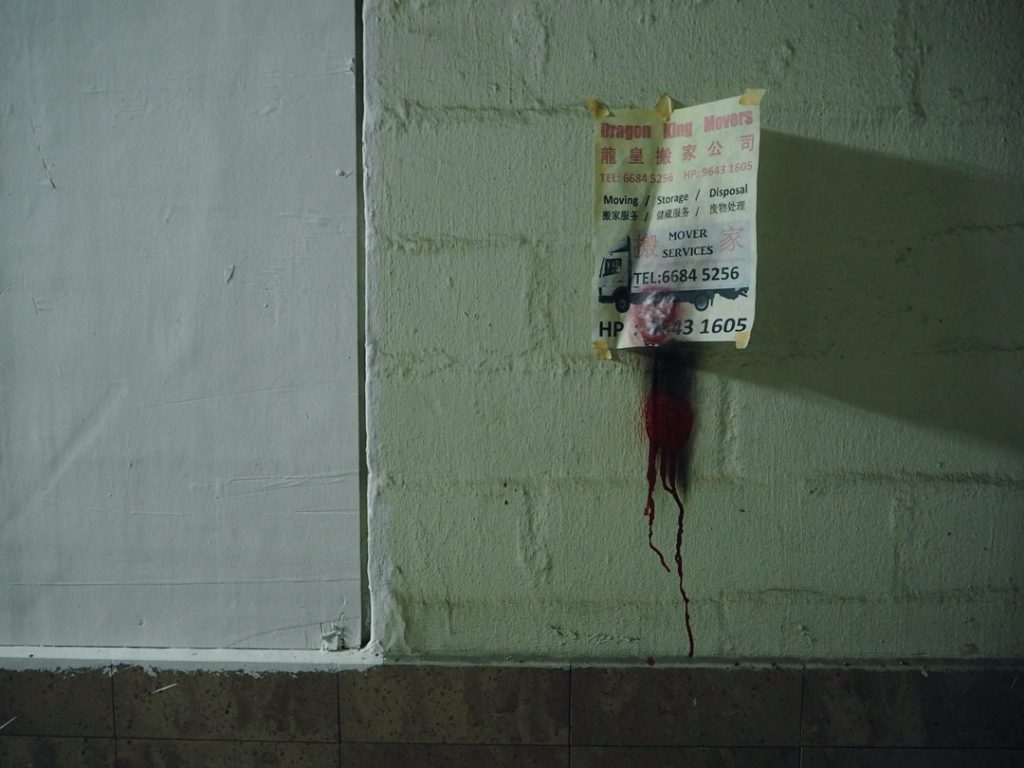
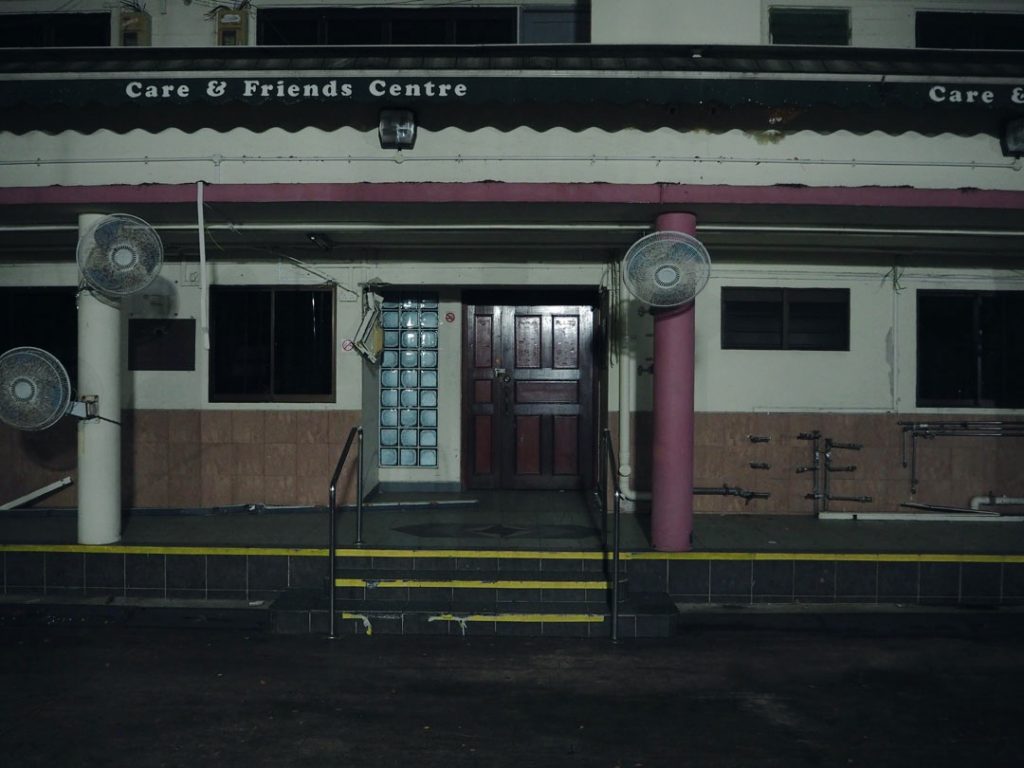
Looking across at Cassia Crescent where former residents Dakota Crescents have been relocated, barely a stone’s throw away, I think about how they get a bird’s eye view of their previous homes every day. It’s a reality they have accepted a long time ago—progress in exchange for memories.
They are reminded everyday of this sacrifice they did not choose to make.
I wonder if they wondered, “Was I simply getting in the way? Where do I belong in this 50-year-young country’s vision of progress?”
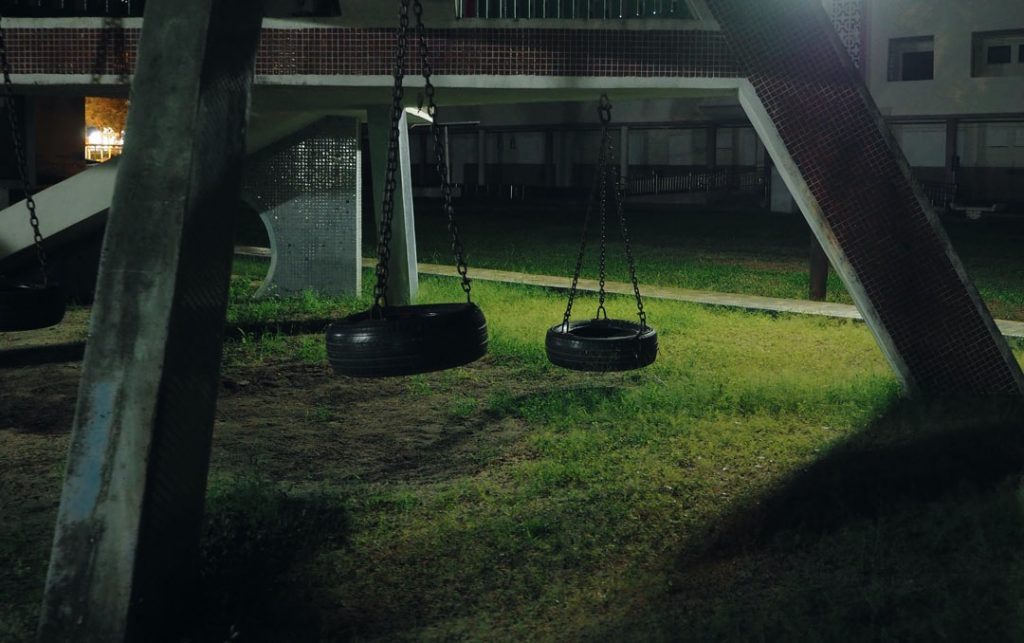
Before I leave, I decide to check out another block. When I reach the void deck, I let out a breath I didn’t even realise I was holding.
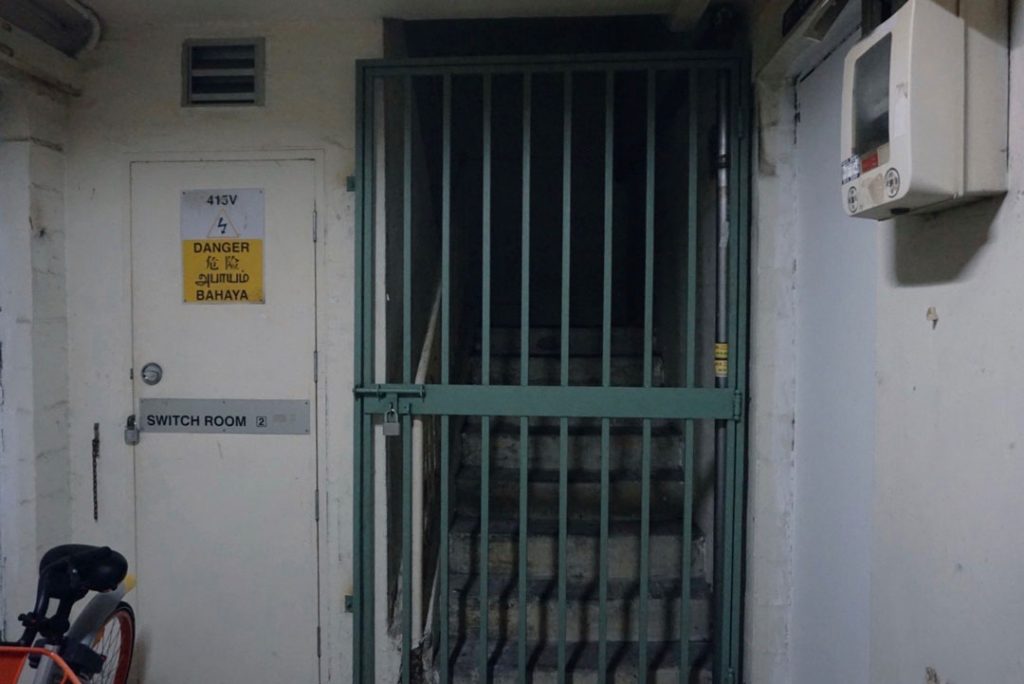
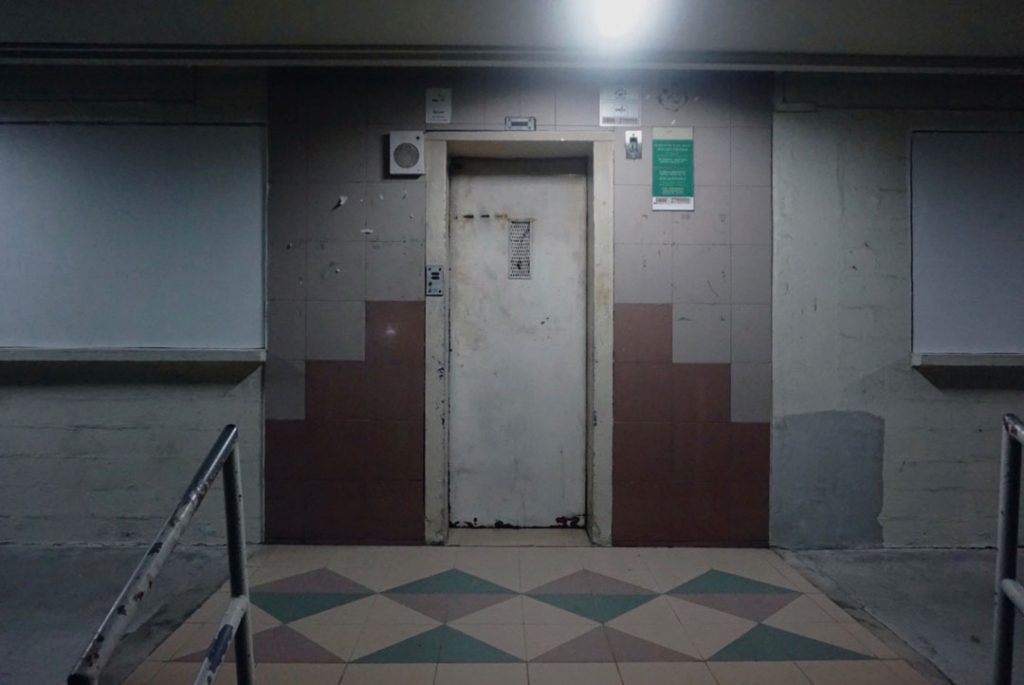
More cigarette boxes, broken glass, and needles lie strewn in the darkest corners. At least people are still finding uses for this dying estate.
Peeking into the houses boarded up by plywood, I make out the shapes of furniture left behind. There is the odd dining chair, a misshapen dresser, and flyers haphazardly thrown across the pattern-tiled floors.
My imagination gets the better of me and I instinctively pull away, fearful that I would see a face looking back—and that it would be human.
Under my breath, I swear at Stephen King.
